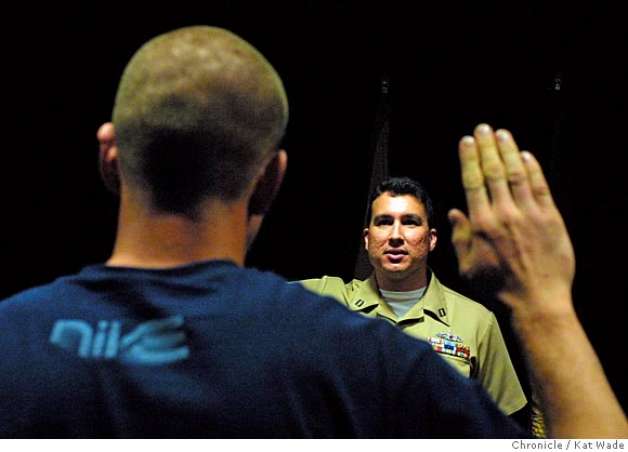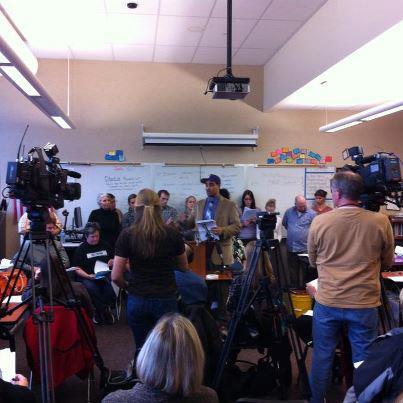Today, 5 May, we ae planning to hold a teach-in against military recruitment in schools. However, under pressure from the JROTC at my school, my principal, Sharon Schauss, informed me yesterday that our meeting would be cancelled. This is a violation of our free speech rights and is effectively denying dozens of students interested in Students Against the Draft and War the right to organize. Meanwhile, military recruiters and the JROTC program have the freedom to regularly push their agenda at my school
 Eight years ago today, a contingent of socialist youth calling themselves Students against the Draft and War, challenges the school administration at Foss high school in Tacoma Washington, when told that their intention to have a meeting to organize a counter-recruitment action against military recruiters on their campus would not be permitted. Below is a re-posting of the documentation of the event, including the telling by the lead organizer, Clara Lightner, and the news stories that followed, the victory of these youth to prevail against the military recruiters in their school, and the follow-up interview with Clara.
Eight years ago today, a contingent of socialist youth calling themselves Students against the Draft and War, challenges the school administration at Foss high school in Tacoma Washington, when told that their intention to have a meeting to organize a counter-recruitment action against military recruiters on their campus would not be permitted. Below is a re-posting of the documentation of the event, including the telling by the lead organizer, Clara Lightner, and the news stories that followed, the victory of these youth to prevail against the military recruiters in their school, and the follow-up interview with Clara.
In the age of Obama, and on the eve of another war for the United States in Syria, this seems an appropriate moment to retell this story to show the contrasts between the Bush and Obama eras, and maybe to spark another resistance against the next violation of the rights of our youth to be able to imagine their futures without violence pre-configured by foreign policy and the health risk this imposes on their futures and our democracy as a people.



 By unanimous vote, the entire faculty at Garfield High School in Seattle voted not to administer the MAP test of reading and mathematics.
By unanimous vote, the entire faculty at Garfield High School in Seattle voted not to administer the MAP test of reading and mathematics.




